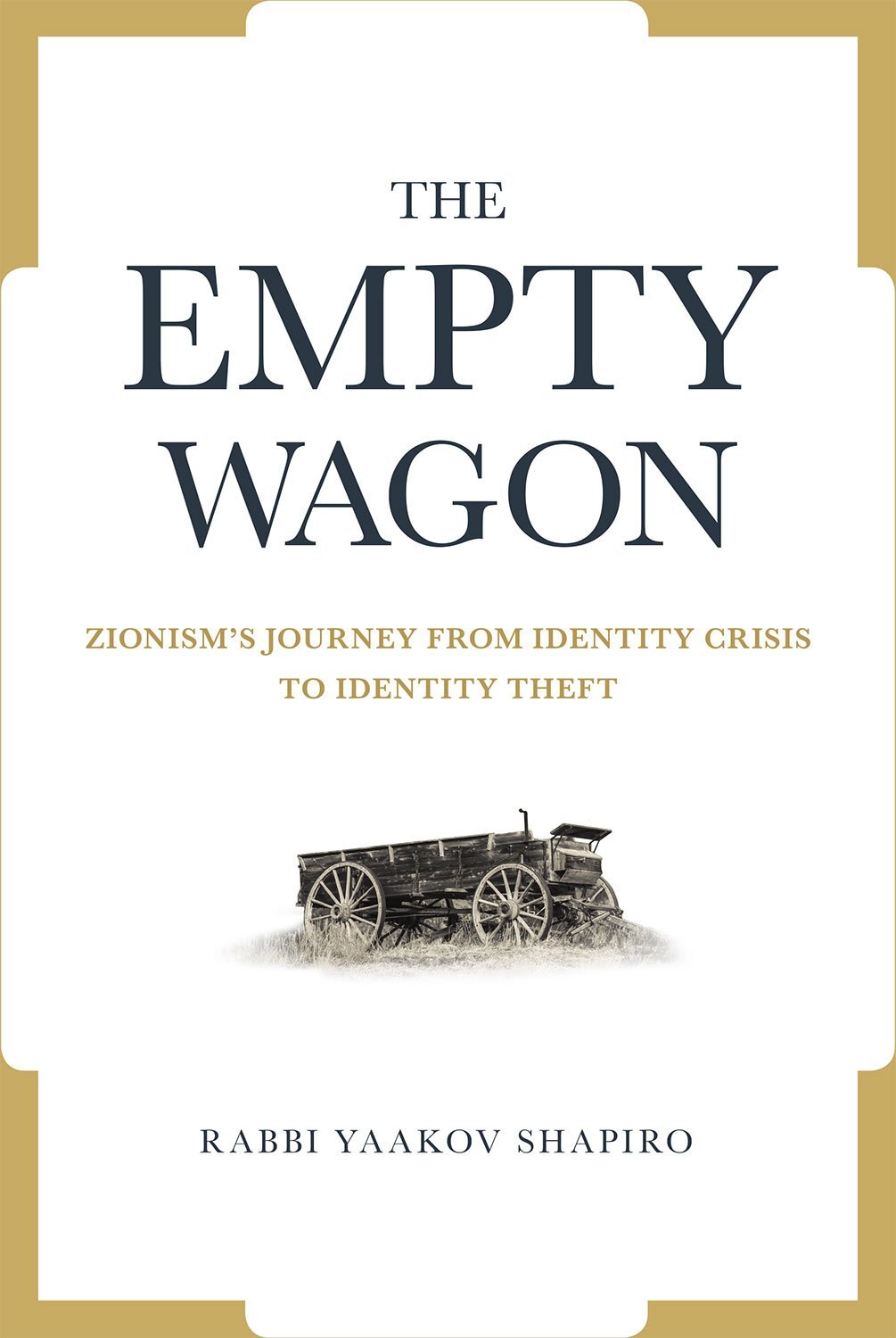The Empty Wagon
A comprehensive account and critical examination of the various Zionist schools of thought and their ideologies, The Empty Wagon provides a great deal of detailed information and novel analyses on the differences between Judaism and Zionism.
The book is divided into three sections: The first (214 pages) is a study of the traditional Orthodox understanding of Jewish identity, Eretz Yisroel (the land of Israel), war and pacifism, anti-Semitism, Messianic redemption, and other Judaic topics. The second section (446 pages) describes Zionism and its new conception of Jewish identity and values, its intellectual and historical origins, its goals and objectives, and the means it employed to obtain them. The final section (630 pages) describes the history of the battle between Judaism and Zionism, from its inception in the 19th century until today.
The central thesis of the book is that at its core, Zionism was conceived to erase classic Jewish identity as a people with a Divinely ordained mission and replace it with an identity based on national polity (similar to the Japanese kokutai). All Zionist schools of thought shared this goal and Zionist policy throughout the 20th century, to be properly understood, must be viewed as either a means to - or a result of - this central objective.
This book is written from a unique perspective: Rabbi Shapiro comes from the same school of thought as many of the original Zionist theoreticians. From that vantage point, he is able to assess aspects of Zionism that often escape scrutiny as well as ample reason to view it as the hostile adversary of the very Jewish identity it purports to represent.

